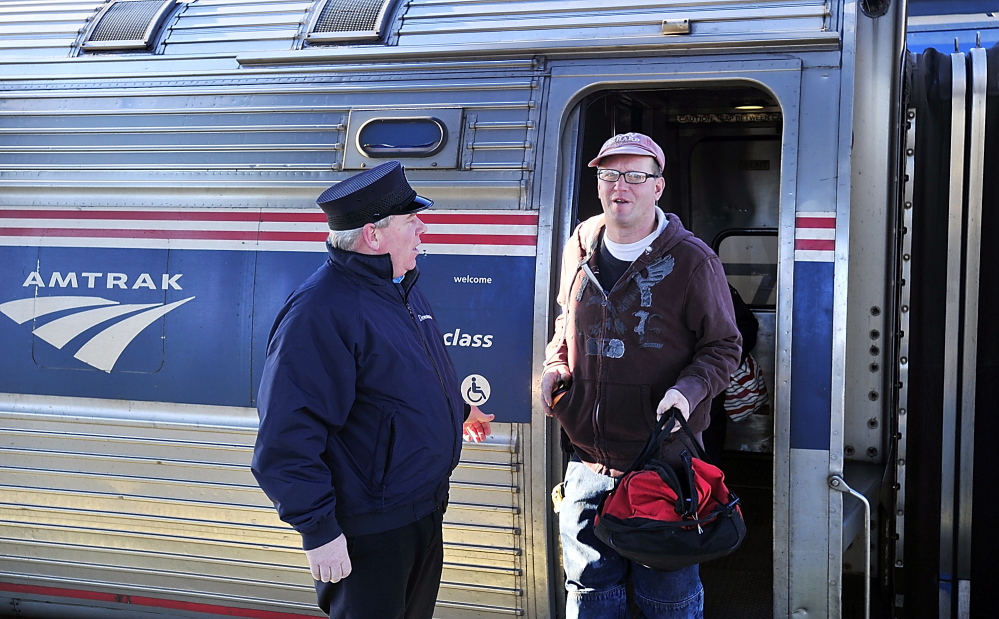Most talk about economic development concerns complicated tax schemes that encourage businesses to move to places that they would otherwise avoid. But there are few economic development tools that have proven to be as effective as direct investment in transportation infrastructure.
Improved roads, rails, airports and docking facilities not only create good construction jobs in the short term, but also pay for off for decades to come by promoting economic activity that would not have been possible otherwise.
Interstate highways have put Maine products in reach of major markets for the last half-century, while making remote parts of the state accessible to visitors.
The Maine Legislature has a chance to make another transportation investment that could have the same kind of long-term payoff – extending passenger rail from Portland to Lewiston-Auburn. Three bills are before the Legislature this year that would complete this missing link.
L.D. 247, which will have a public hearing Tuesday, would raise a $25 million bond to expand Downeaster service between Maine’s biggest population centers. Lawmakers should jump aboard this opportunity and send this bond issue to the voters.
About 500,000 people currently ride the Amtrak Downeaster in its five daily round trips between Boston and Portland and two between Boston and Brunswick. As a business, the rail service is not very profitable, but its economic impact goes much further.
The presence of the service has resulted in millions of dollars in private investment from business that develop housing, shopping opportunities and other services near the stations in places like Biddeford, Freeport and Brunswick. That expansion shows up in local property tax rolls and business profits, not on the Amtrak balance sheet.
Expanding rail service to Lewiston-Auburn would be the next link in Boston-to-Montreal rail service, which, if completed, could bring visitors from both cities to Maine’s mountains and seacoast.
Once Montreal service is complete, Maine won’t be the end of the line any- more, but an attractive spot in the middle of the route.
Two related bills are also moving through the Legislature. L.D. 438 would create a mechanism for towns to partner with business to finance development near station stops, and L.D. 323 would fund a transportation study of the rail expansion.
Being fiscally responsible means knowing when to spend as well as save. This is an opportunity to put money to work now in a way that will keep benefits coming for a long time.
Lawmakers should not miss this opportunity. Extending rail service is a proven economic development tool that should be used.
Send questions/comments to the editors.



Success. Please wait for the page to reload. If the page does not reload within 5 seconds, please refresh the page.
Enter your email and password to access comments.
Hi, to comment on stories you must . This profile is in addition to your subscription and website login.
Already have a commenting profile? .
Invalid username/password.
Please check your email to confirm and complete your registration.
Only subscribers are eligible to post comments. Please subscribe or login first for digital access. Here’s why.
Use the form below to reset your password. When you've submitted your account email, we will send an email with a reset code.